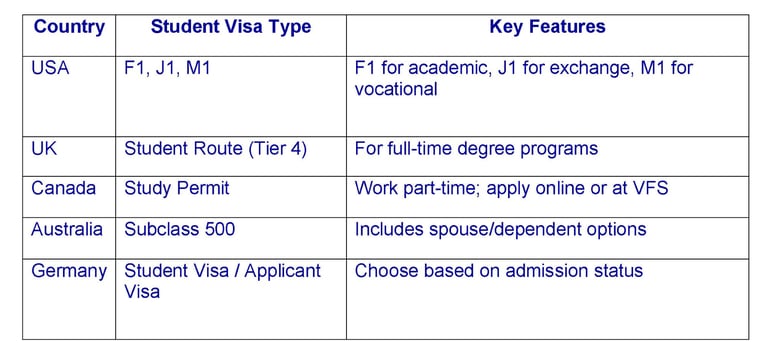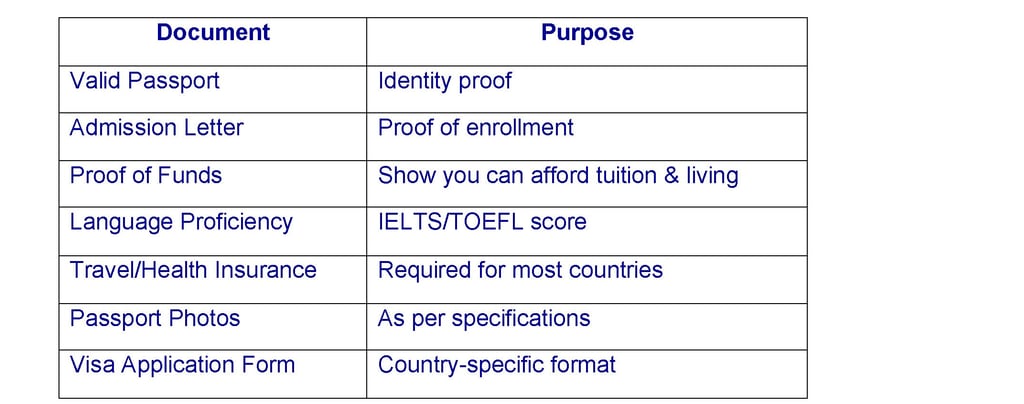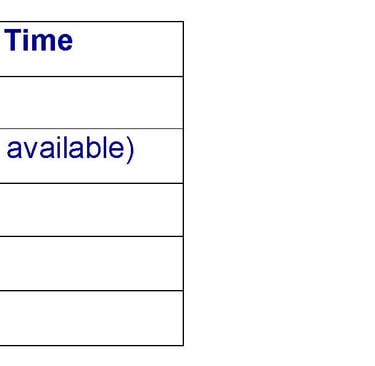✉ shreeconsultancyjsb@gmail.com ✆ Ph. No.: +91 78781-47589 , +91 97828-06464

Visa Process Explained: How to Get a Student Visa Easily
Confused about the student visa process? Learn how to get a student visa easily with this step-by-step guide, including requirements, timelines, and expert tips.
5/12/20252 min read
A student visa is an official authorization that allows foreign nationals to study in a different country. It’s issued by the country’s immigration authority and is usually tied to your admission into a recognized educational institution.
Student Visa vs. Other Visas
Unlike tourist or work visas, a student visa:
Requires proof of enrollment in a study program
Often allows limited work rights
May lead to a post-study work permit
Types of Student Visas by Country
When Should You Apply for a Student Visa?
Start at least 3–6 months before your intended start date. Early application:
Gives you time to fix document issues
Increases chances of timely approval
Helps secure affordable tickets and housing
Step-by-Step Guide to Getting a Student Visa
Step 1: Receive Your Admission Letter
Get an unconditional offer letter from your university.
Step 2: Gather Required Documents
Passport
Admission letter
Language test scores (IELTS/TOEFL)
Proof of funds
Travel/health insurance
Step 3: Pay the Application Fee
Each country has a specific fee:
USA: ~$185
UK: ~£490
Canada: ~$150 CAD
Australia: ~$650 AUD
Step 4: Book Your Appointment
Schedule a visa interview or biometric submission at your nearest embassy or VFS office.
Step 5: Attend the Visa Interview
Answer confidently and clearly about your:
Course choice
Future goals
Funding sources
Step 6: Wait for Results
Processing may take days to weeks. You’ll be notified via email or SMS.
Documents Required for a Student Visa
Here’s a general checklist:
Visa Interview Tips and Preparation
Common Questions:
Why did you choose this course/country?
Who’s funding your studies?
Do you plan to return home after studies?
Do’s:
Be honest and calm
Dress formally
Show ties to your home country
Don’ts:
Don’t memorize answers
Don’t argue with the officer
Don’t give vague financial details
Common Mistakes to Avoid During Visa Application
Submitting incomplete documents
Providing unclear proof of funds
Last-minute applications or booking the wrong appointment slot
Using fake documents (leads to permanent bans)
Visa Approval Timelines by Country
Note: Processing times can vary by embassy and season.
What to Do If Your Visa is Rejected
Common Reasons:
Insufficient funds
Weak SOP or interview
Mismatch between course and background
What You Can Do:
Reapply with stronger documentation
Correct the issues highlighted in the rejection
Consider appealing if the country allows it
Post-Visa Approval Checklist
After getting your student visa:
Book your flight early
Arrange student accommodation
Buy medical and travel insurance
Check pre-departure guidelines
Keep both physical and digital copies of your visa
FAQs About Student Visas
Q1: Do I need IELTS to get a student visa?
Yes, for most English-speaking countries. However, some universities accept MOI (medium of instruction) letters or Duolingo tests.
Q2: Can I work on a student visa?
Yes, usually up to 20 hours per week during the semester and full-time on holidays.
Q3: Can I take my spouse on a student visa?
Yes, countries like Canada, Australia, and the UK allow dependents with specific conditions.
Q4: What is proof of funds for a student visa?
You must show bank statements, scholarships, or sponsor letters covering tuition + living expenses.
Q5: What happens if my visa is rejected?
You can reapply or appeal, depending on the country. It’s important to correct the reason for rejection.
Q6: Is visa approval guaranteed if I have admission?
Not always. Visa approval also depends on your finances, documents, and interview performance.






